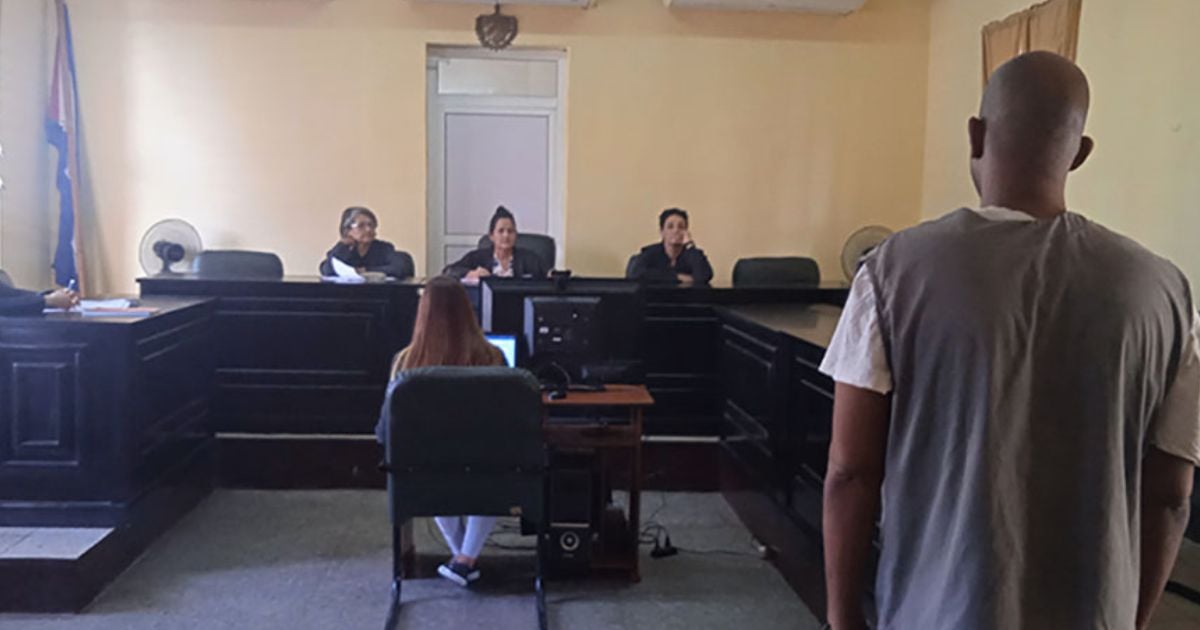An operator from the Ministry of the Interior (MININT) in Ciego de Ávila has been sentenced to seven years in prison for sabotage after he poured water into the fuel tank of a generator that powered the communications center of the provincial MININT delegation. The incident occurred on April 29, 2024, during an audit where a shortage of 30 liters of diesel was discovered in the unit known as "Ciego 1," according to the official report from the local newspaper Invasor.
The accused, a university graduate qualified as an "Operator C," attempted to conceal the shortage by adding water to the tank, claiming it was an impulsive act driven by fear of being held accountable. Just hours later, while the country was grappling with one of its frequent power outages, the generator was activated, only to fail after 20 minutes of operation.
The contamination rendered the MININT communications system inoperative, disrupting automated services for the National Revolutionary Police (PNR), video surveillance systems in the province, emergency phone lines for the PNR and fire services, and both provincial and national information flow.
Months later, the trial took place in the State Security Crimes Chamber in Camagüey province, under case number 4 of 2024. The court found that the defendant acted with eventual intent, aware that his actions could cause harm, even if that was not his direct intention. He was found guilty of sabotage under article 125, section 1, paragraph a, of the current Penal Code.
Despite his defense highlighting his status as a first-time offender and his prior good social and work conduct, the court imposed a seven-year prison sentence with additional penalties, including disqualification from holding the position, a travel ban, and the confiscation of the container used to pour the water. The accused expressed remorse, stating, "I thought I would be blamed, I got nervous... I never intended to harm anything. I'm quite ashamed because I'm not someone who commits crimes, let alone sabotage."
The prosecution, however, emphasized the seriousness of the offense, noting that acts of sabotage threaten the state's internal security, institutional order, and political stability. "The crime of sabotage affects public welfare and the state's internal security... it can be committed with direct or eventual intent, as in this case," argued the Public Ministry representative.
This case highlights the harshness with which Cuban authorities punish actions affecting state infrastructure, especially amid frequent power outages, fuel shortages, and public discontent, where the regime is particularly sensitive to any act perceived as a threat to its institutional control.
In March 2025, the Cuban regime intensified its judicial crackdown as part of the so-called National Exercise for Prevention and Confrontation of Crime, Corruption, Illegalities, and Social Indiscipline, a campaign aimed at conveying authority and discipline through exemplary trials.
Miguel Díaz-Canel himself demanded "forceful" responses from the Communist Party Central Committee for crimes committed in state institutions, including theft, vandalism, and corruption, making it clear that these actions will be pursued with severity to impose social control.
One of the most notable cases involved the trial of a man in Holguín, sentenced to ten years in prison for attempting to snatch a cellphone from a girl on the street amid rising urban violence and perceived insecurity. This severe punishment was presented as an example of the state's "zero tolerance," despite questions about its proportionality concerning the crime committed and the population's economic situation.
Days earlier, operators at the "Ñico López" refinery in Havana faced criminal prosecution for corruption and administrative negligence. The accused faced serious charges after irregularities were discovered in fuel deliveries, a critical resource amid a deep national energy crisis. In Puerto Padre, Las Tunas province, another former official was sentenced to seven years in prison for administrative corruption. The former municipal intendant was charged with improperly favoring private entities and granting irregular contracts.
Authorities emphasized that such proceedings against local figures aim to "preserve transparency in public management," although experts warn that these actions may be more about setting examples than actual institutional transformation.
Key Questions on Cuban Judicial Crackdown
What was the operator from MININT in Ciego de Ávila convicted for?
The operator was convicted for sabotage after pouring water into the fuel tank of a generator, affecting the communications system of the provincial MININT delegation.
How did the court justify the seven-year sentence?
The court justified the seven-year sentence by stating that the operator acted with eventual intent and was aware that his actions could cause harm, thus committing sabotage under the Penal Code.
How has the Cuban regime responded to crimes affecting state institutions?
The Cuban regime has intensified its judicial crackdown, demanding severe responses to crimes in state institutions to impose social control and convey authority.
What are some other notable cases of severe sentencing in Cuba?
Notable cases include a Holguín man sentenced to ten years for attempting to snatch a cellphone and refinery operators in Havana prosecuted for corruption and negligence amid a national energy crisis.
